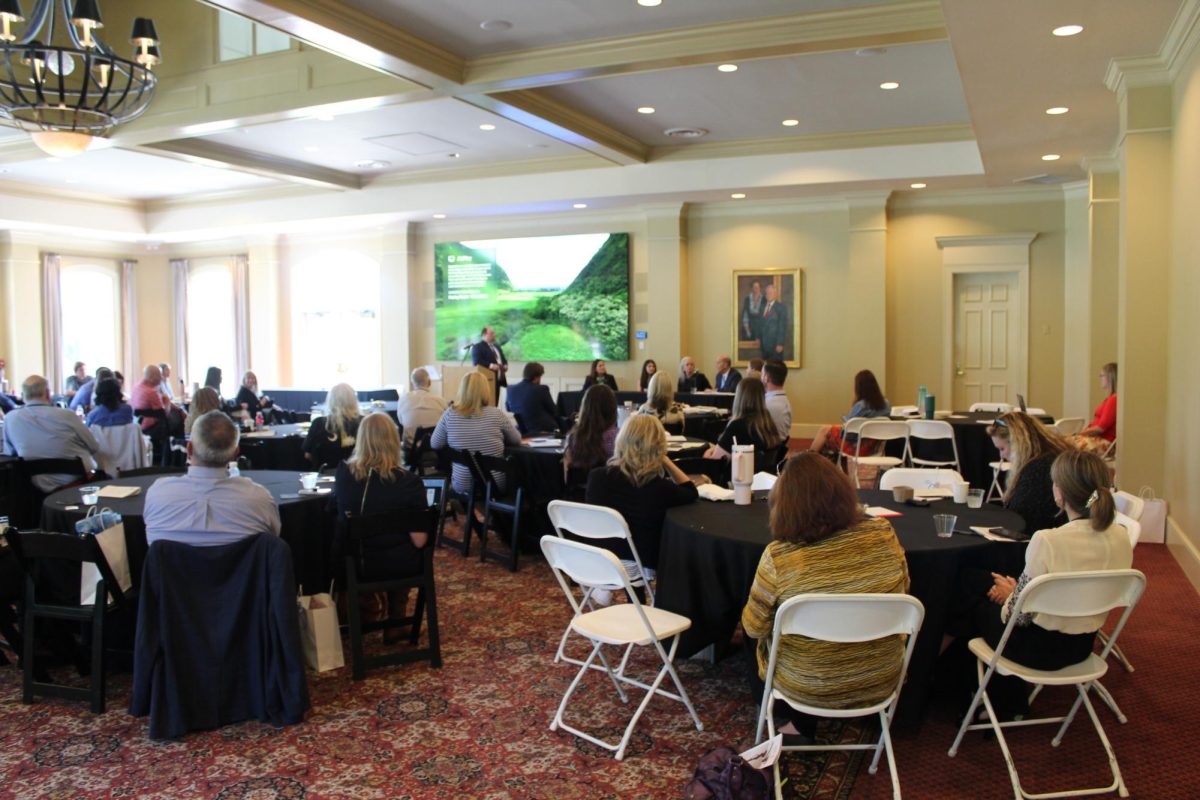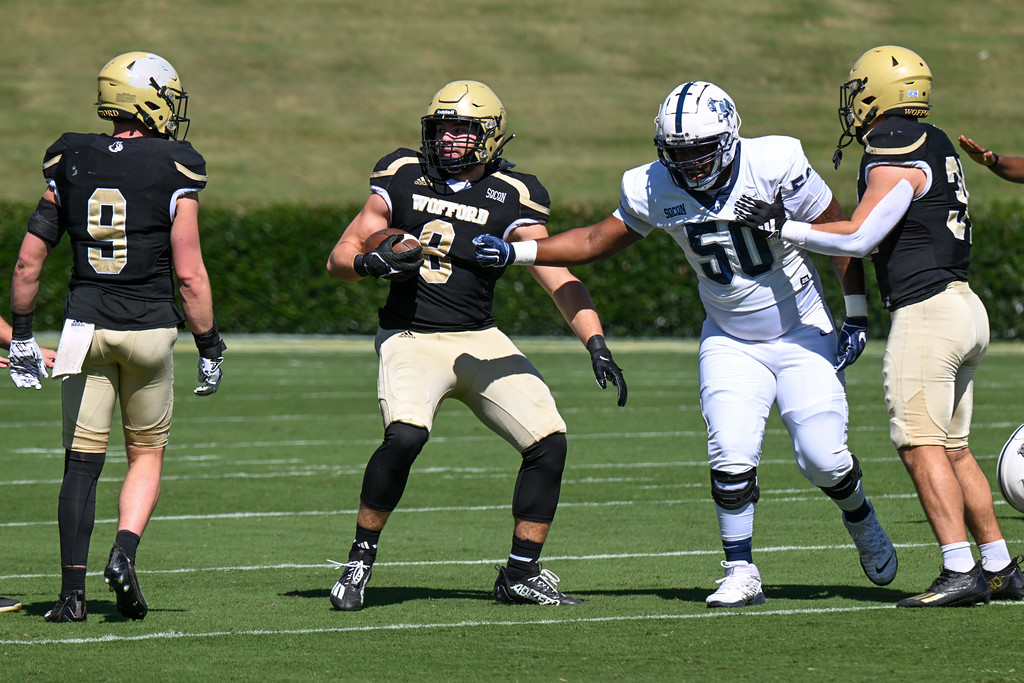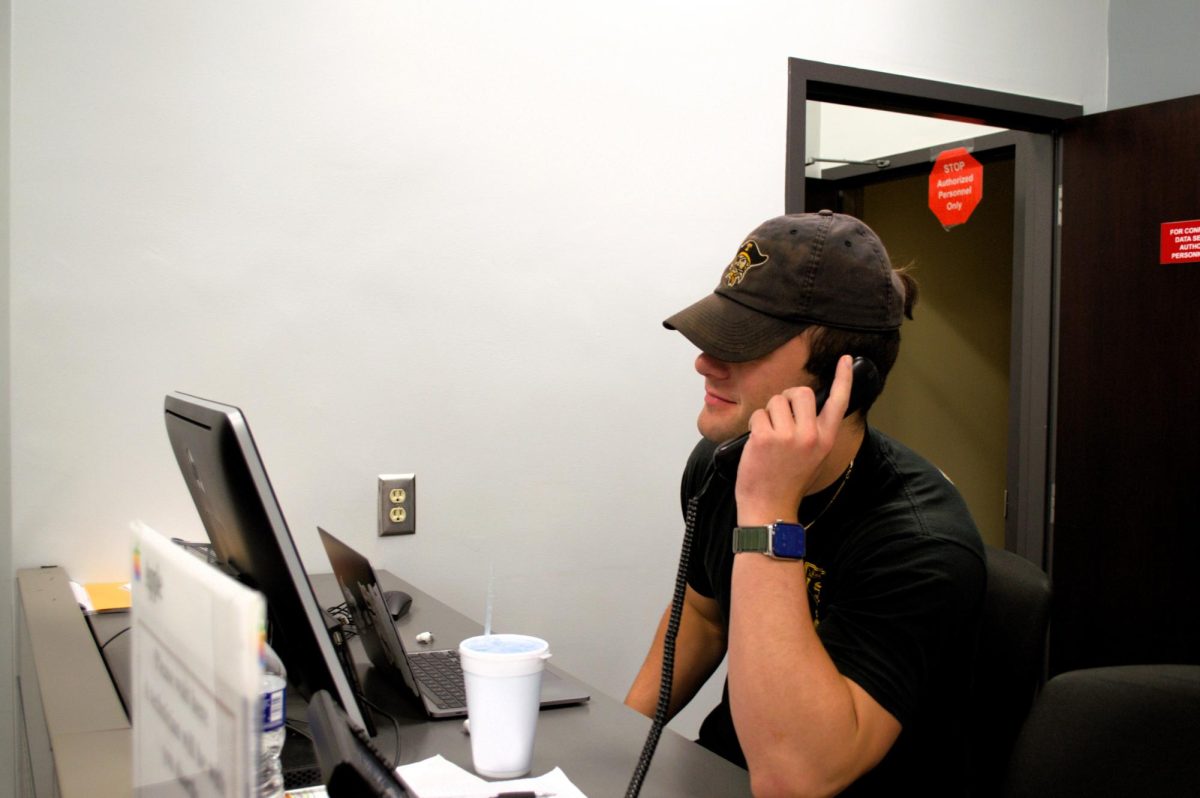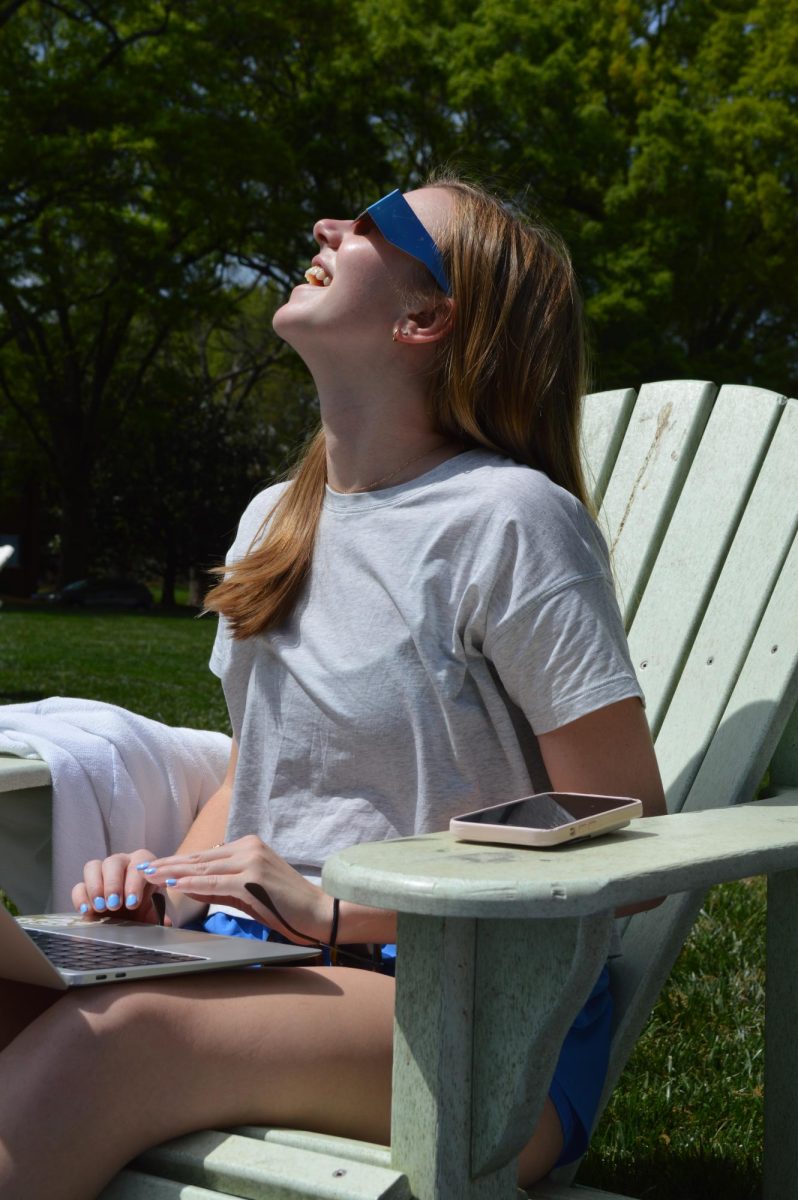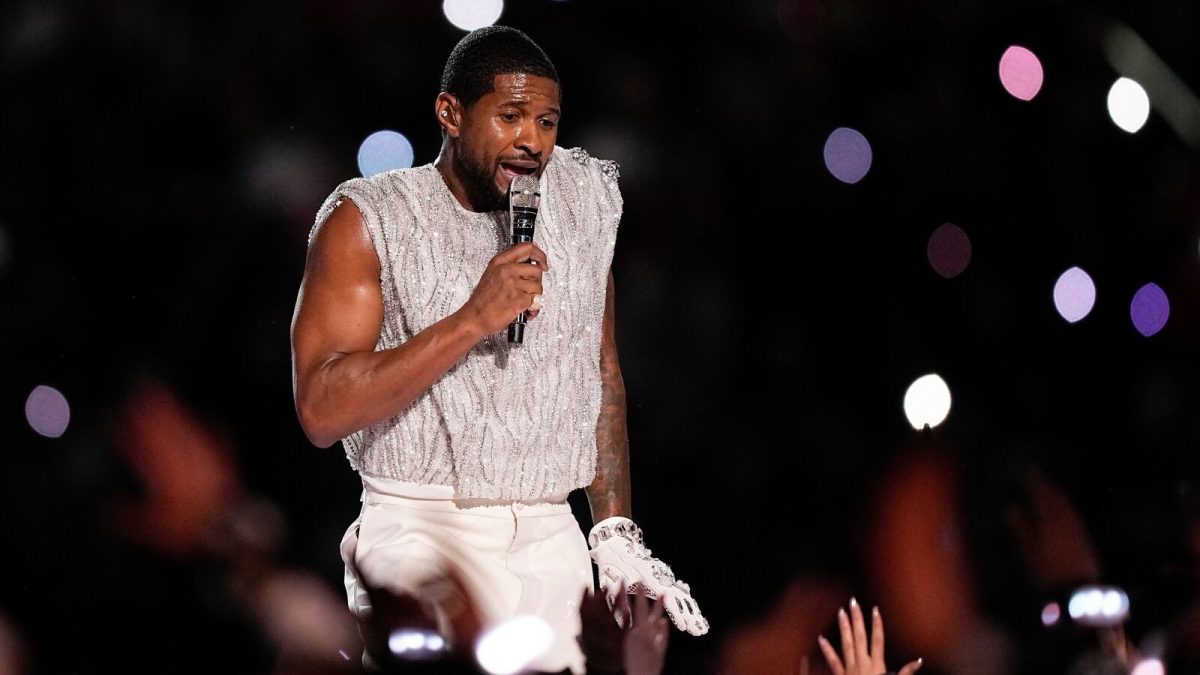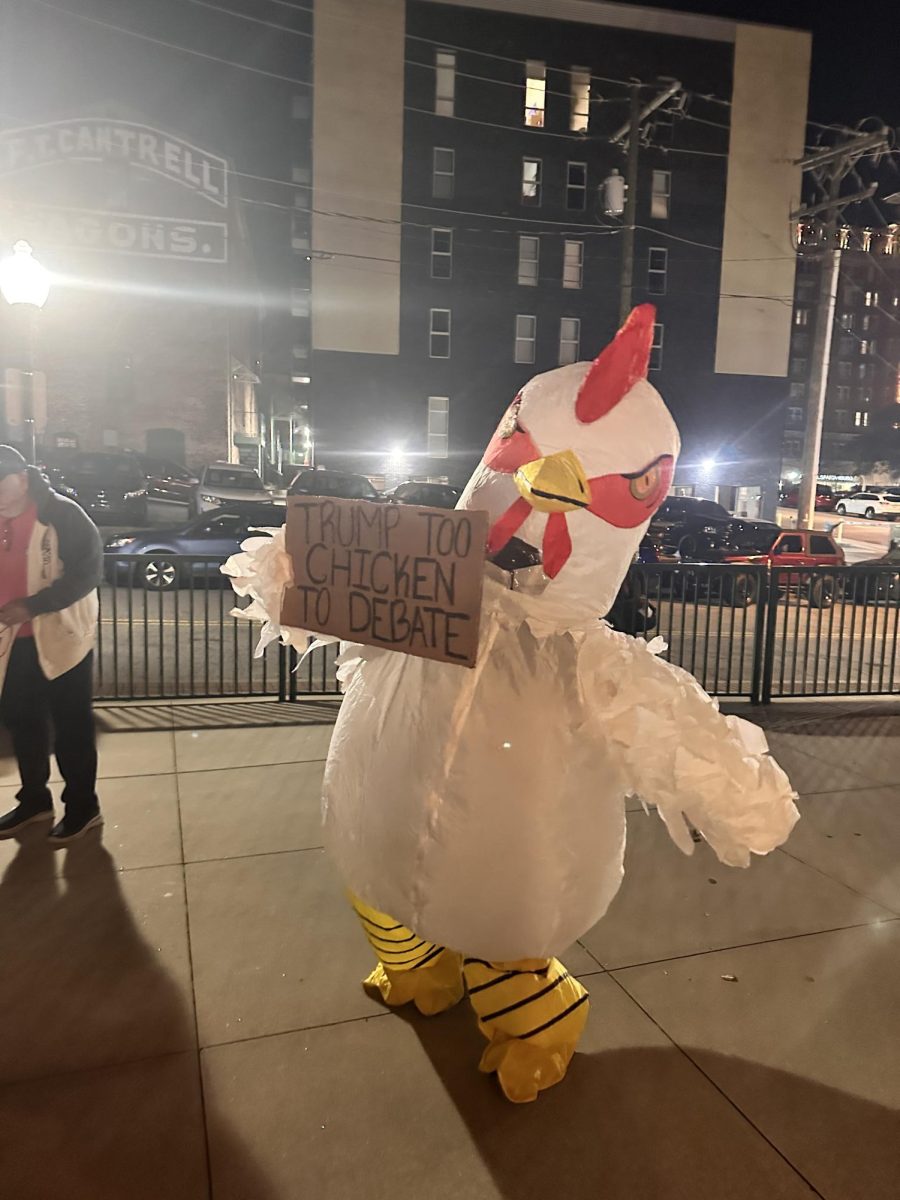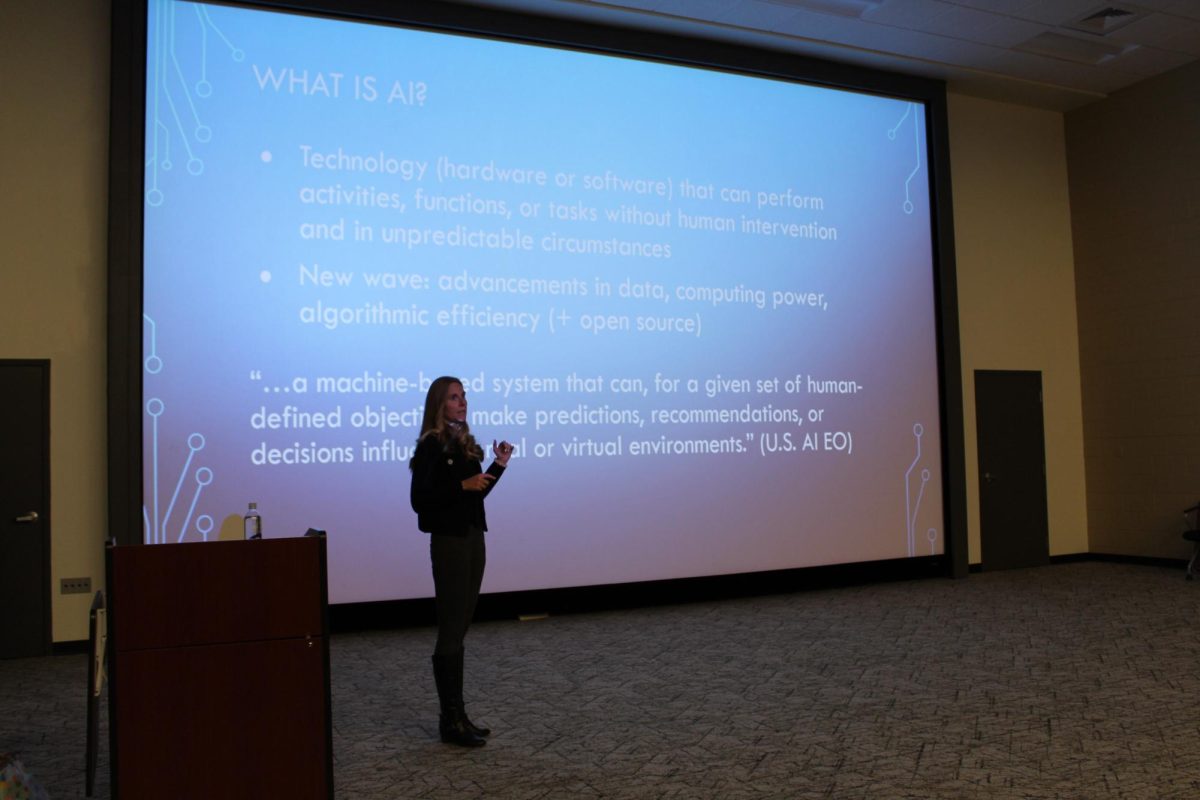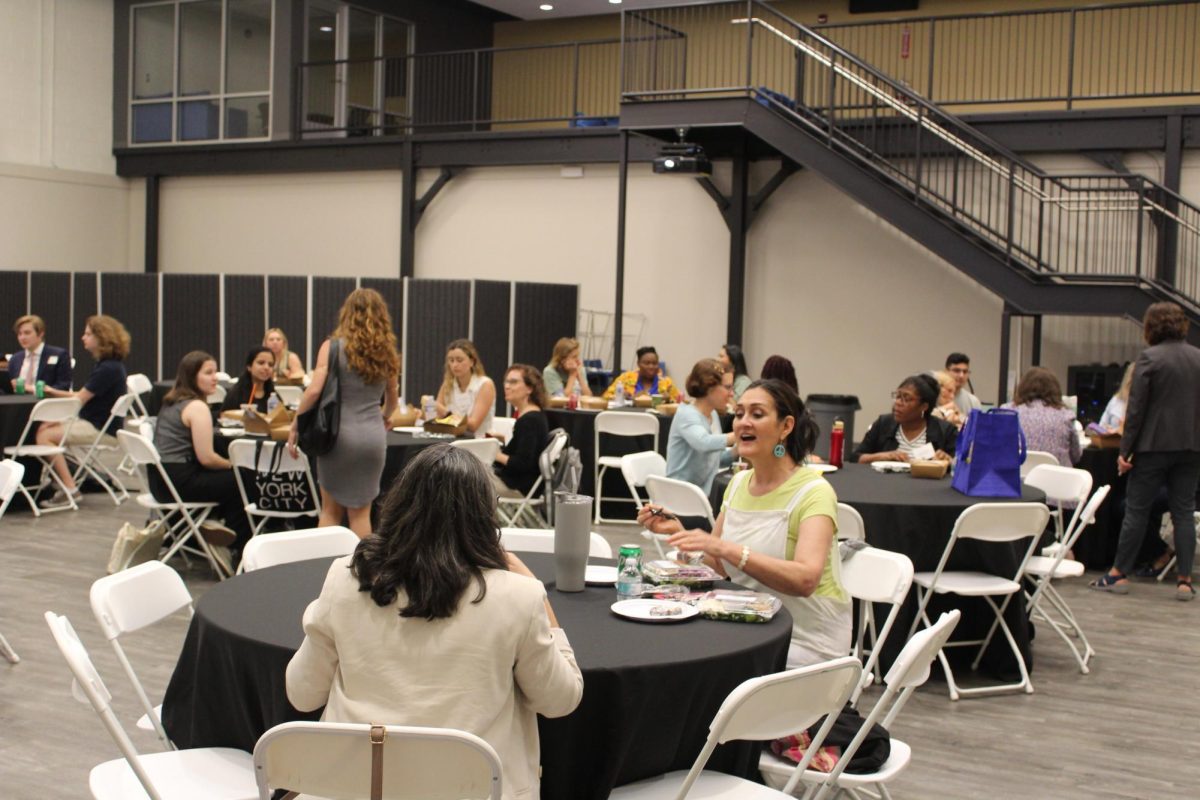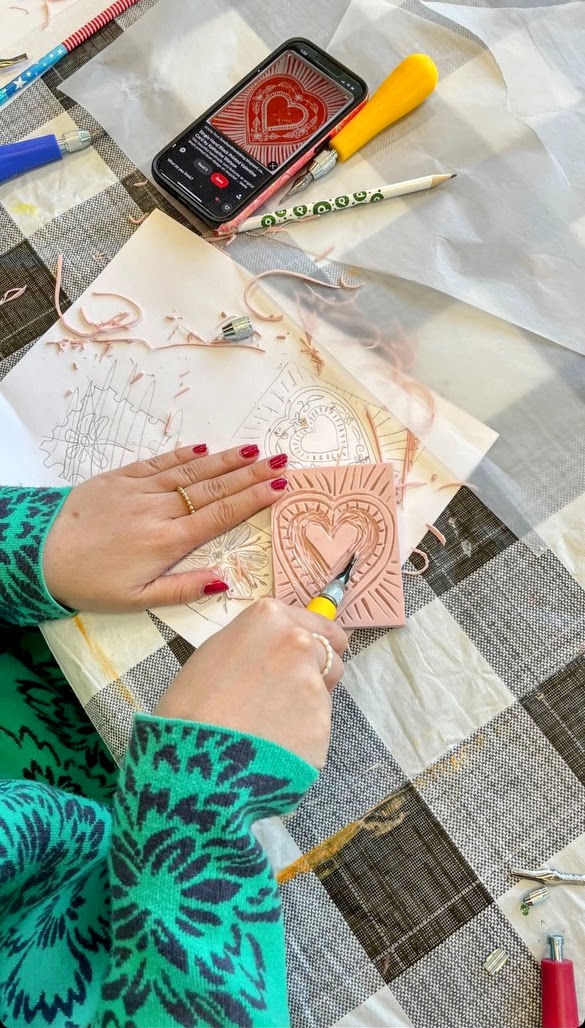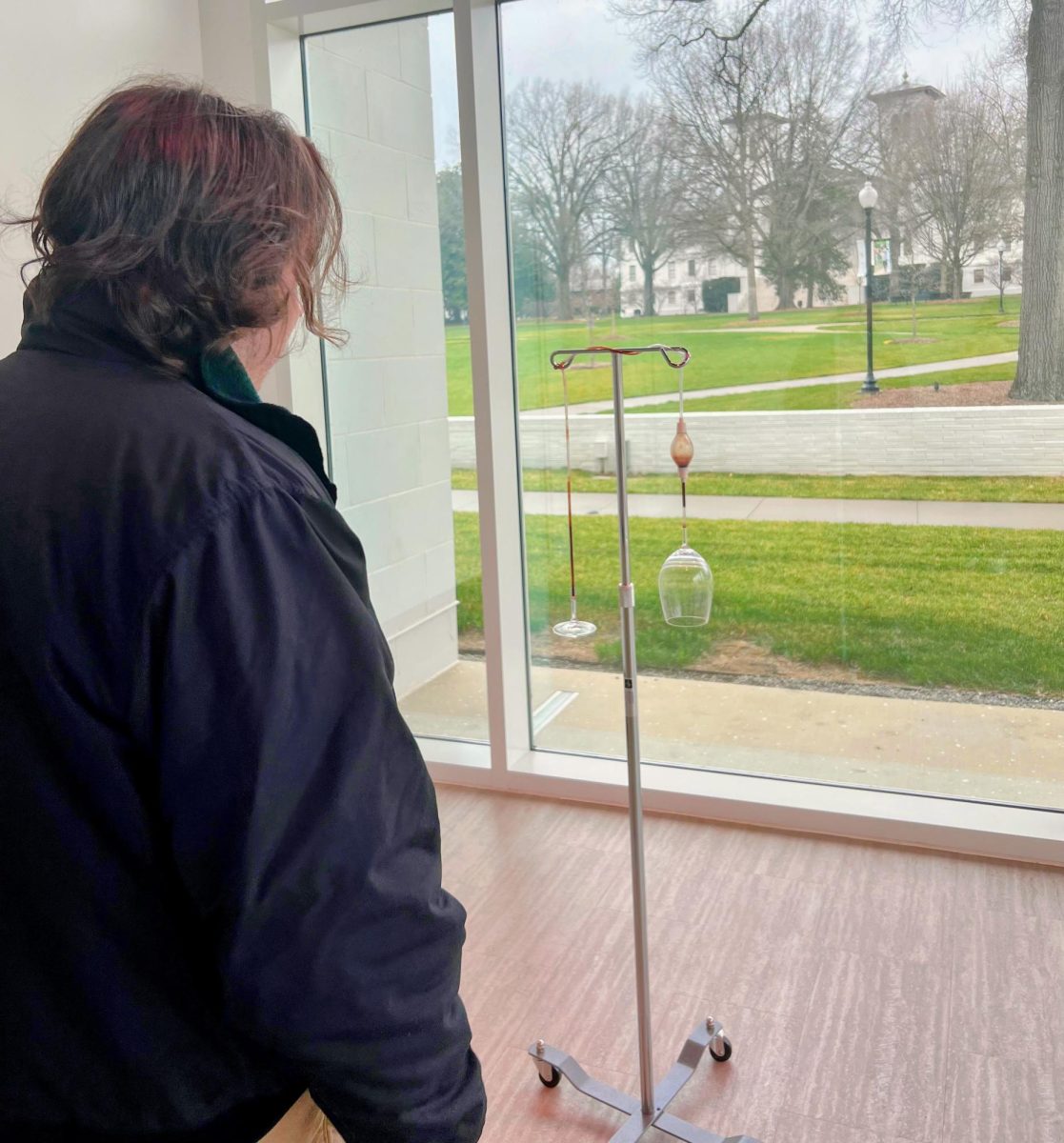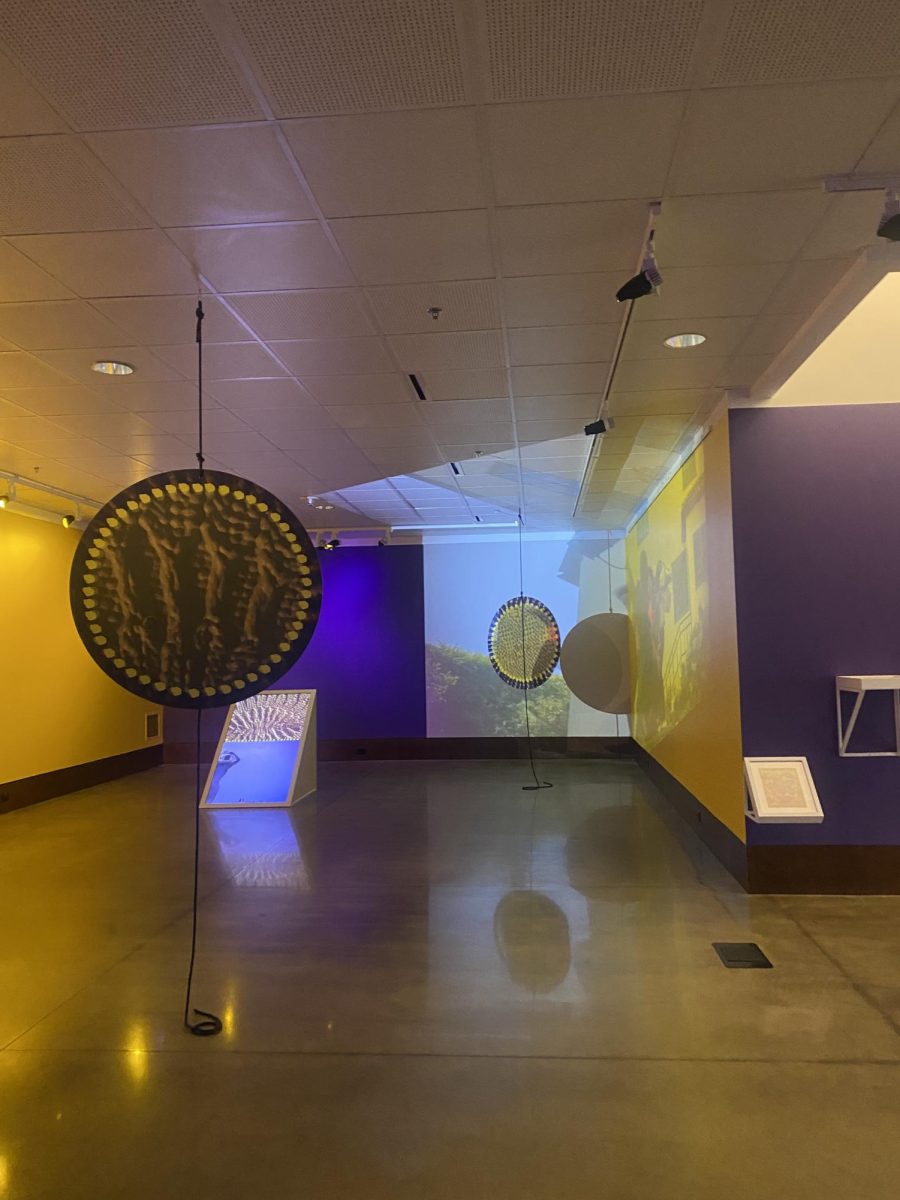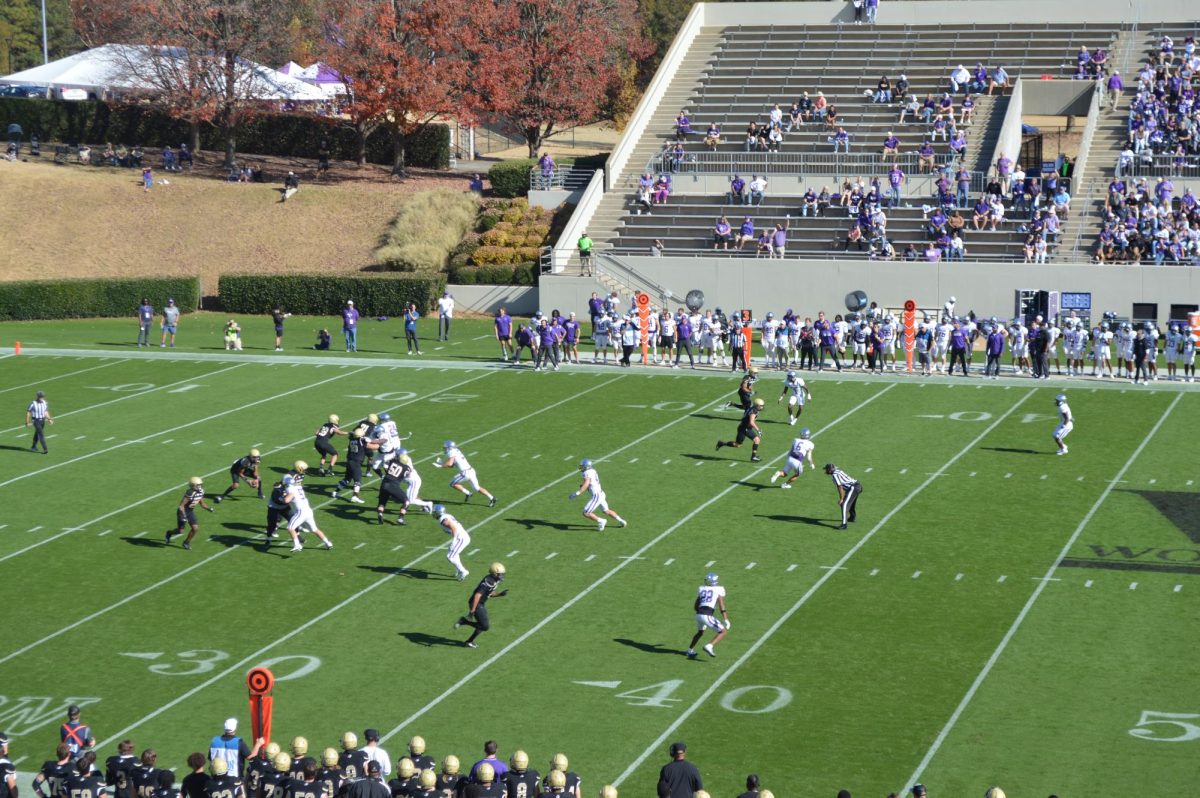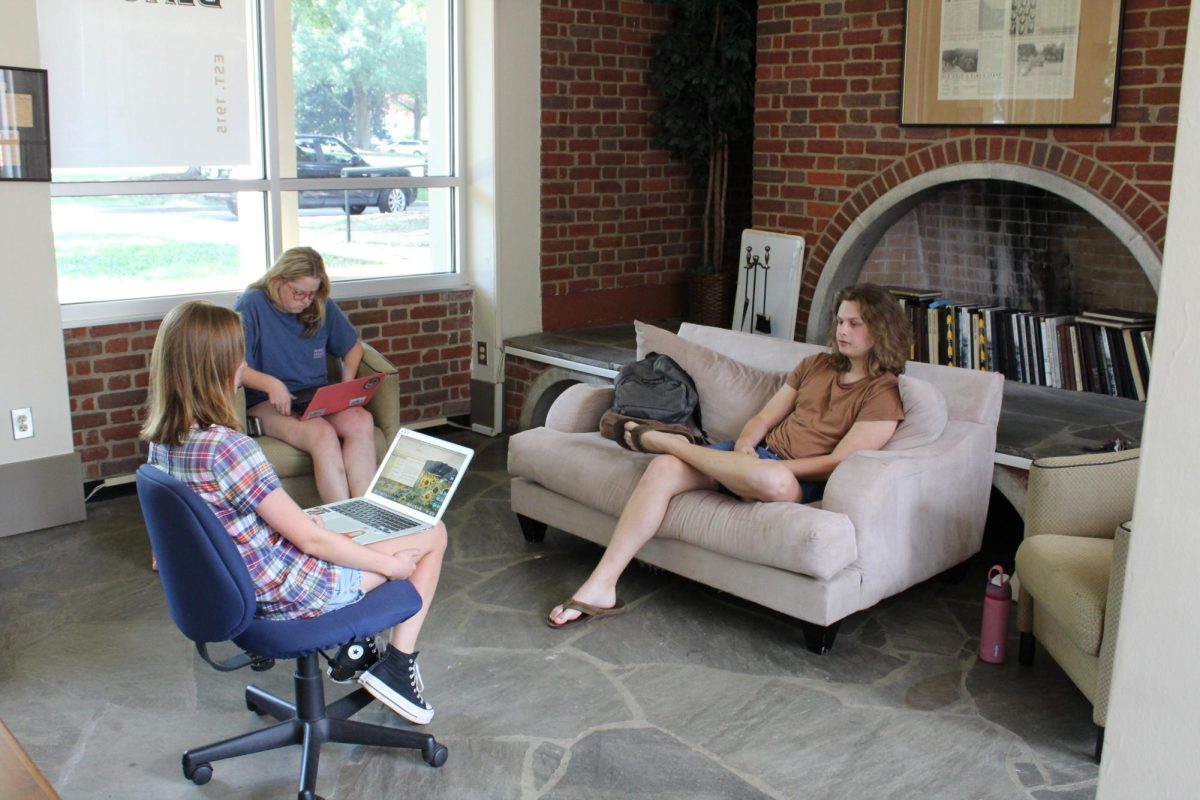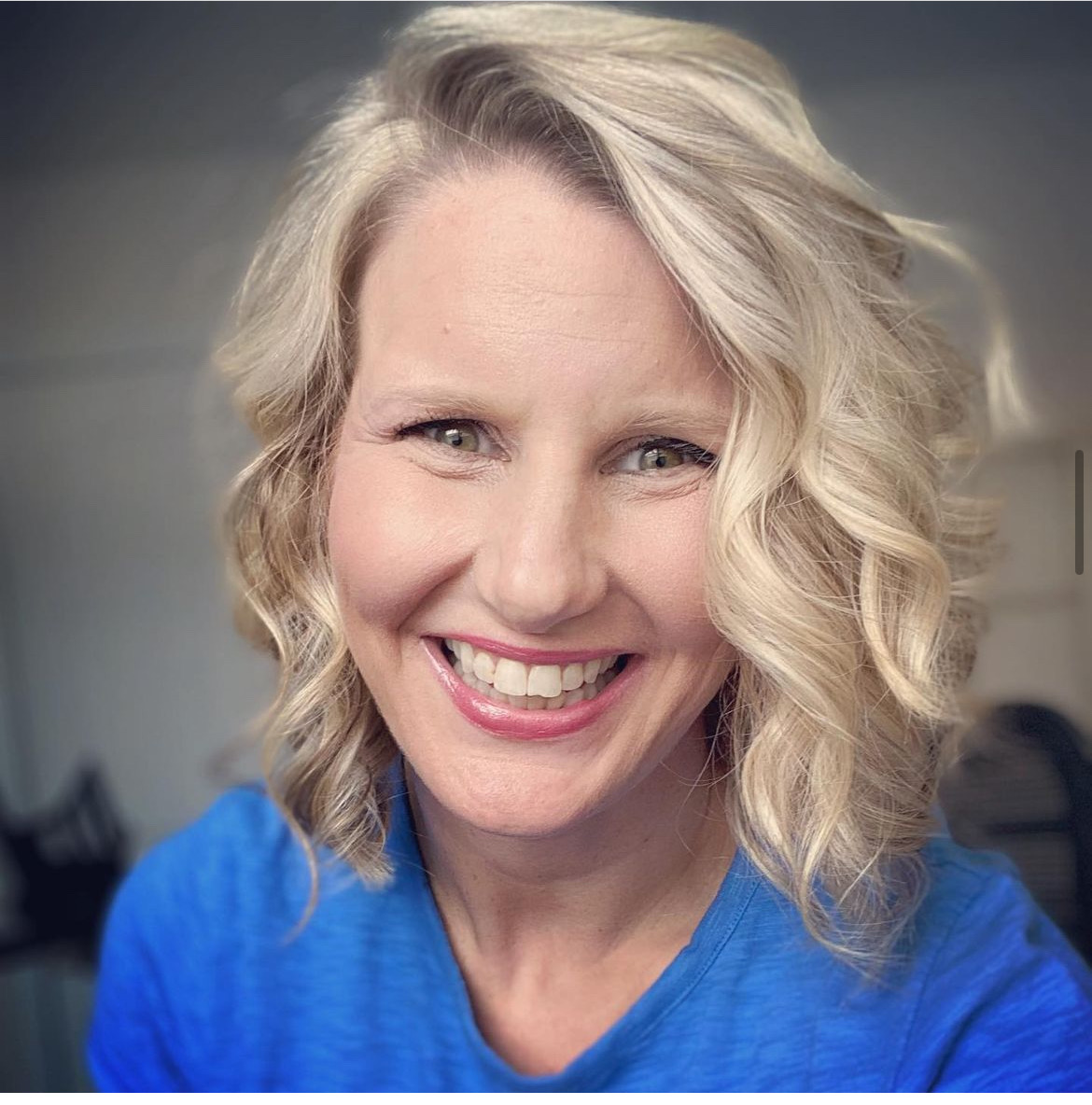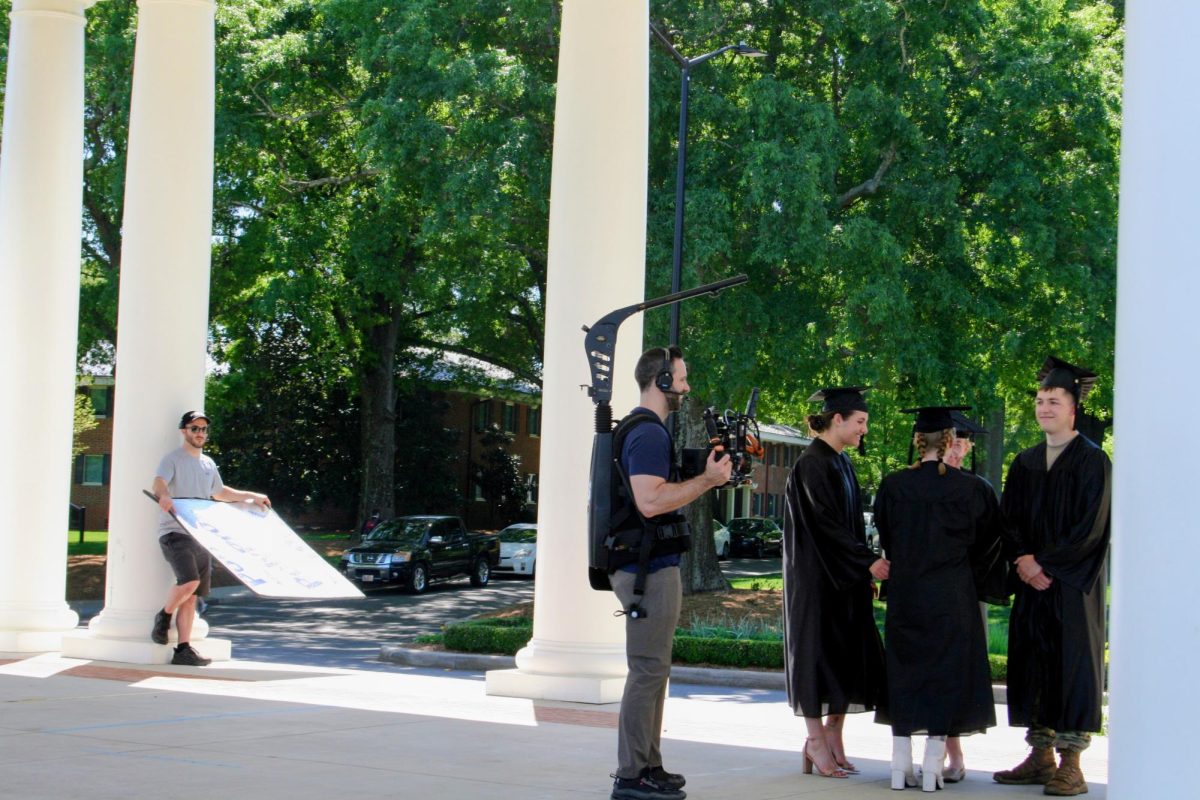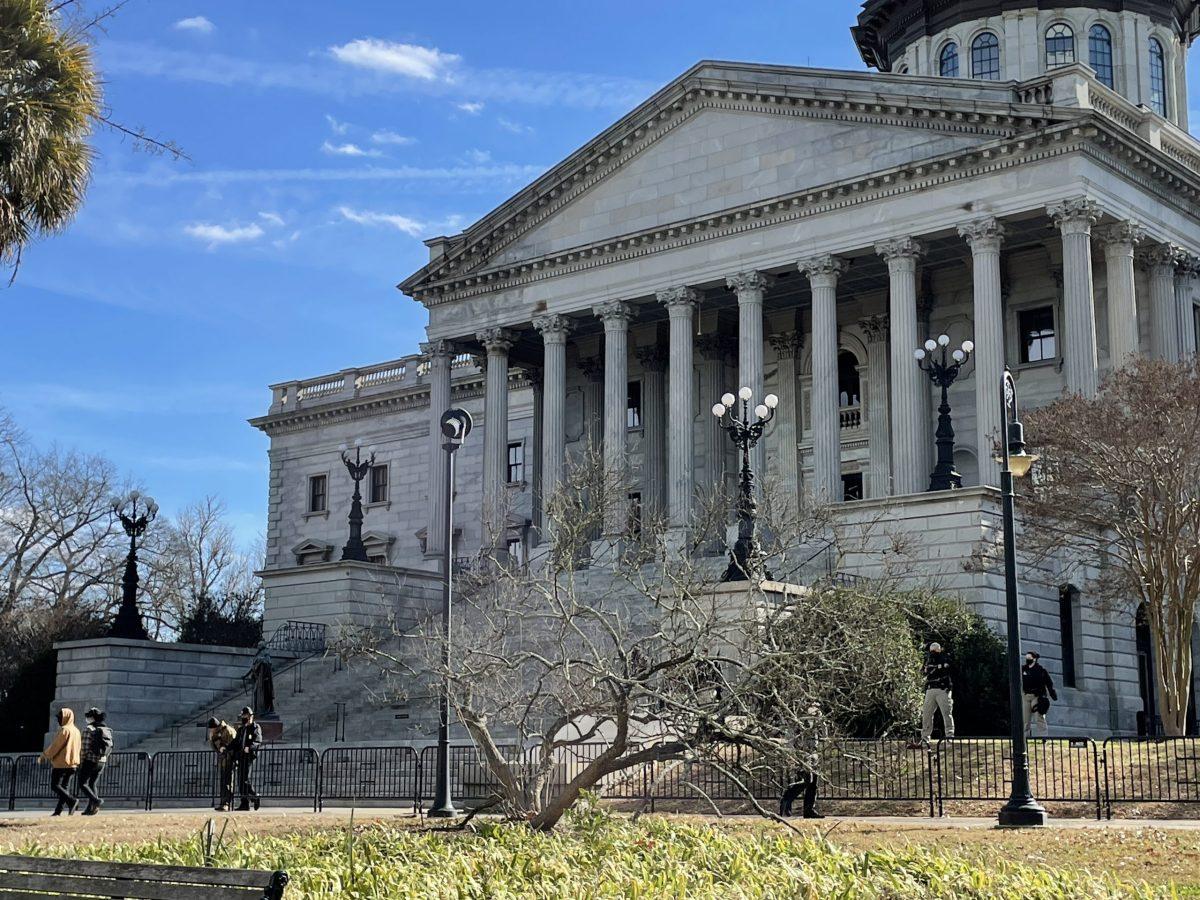Group meets at S.C. Statehouse to protest online censorship
On a bright but chilly day in our state capital of Columbia, S.C., a small group of about 40 conservatives formed in front of the Statehouse to protest the recent bans on social media websites like Twitter, Facebook, etc.
Followingr the events of Jan. 6 in Washington, D.C., social media corporations began to suspend profiles that spread conspiracies like “Stop The Steal” as against their Terms of Service. The most talked about of course being former President Donald J. Trump’s Twitter account that was permanently suspended from the service on Jan. 8.
Twitter said in a statement regarding the banning of Trump, that the platform “exists to enable the public to hear from elected officials and world leaders directly. It is built on a principle that the people have a right to hold power to the account in the open. However, we made it clear going back years that these accounts are not above our rules entirely and cannot use Twitter to incite violence, among other things.”
“Drive For America,” originating in Florence county S.C., was the group that organized the small rally on Jan. 17 against what they saw as a violation of their first amendment rights. Many people in the Statehouse did not go to work that day due to concerns about the event. The group members and speakers came from many different places, most from S.C., with a few from other states like Georgia and at least one from Texas.
The first speaker stated that their social media platform was “to expose pedophiles, sex offenders, and to protect our children” and “also stands for veterans and censored Americans.” They claimed that “good-hearted Americans” are being censored for their beliefs while “pedophiles and child porn roam the internet like wildfire.”
Most likely this claim is referencing “Save The Children” an online anti-child trafficking movement that is somewhat connected to the far-right Qanon conspiracy and has been previously restricted on platforms like Facebook for spreading “falsehoods about the exploitation of children by Democrats including President Joe Biden.” The movement, in its current form, has been shown to make it harder to combat real child trafficking.
The third speaker focused on getting repeatedly banned on social media for spreading the conspiracy theory that there had been voter fraud in the 2020 presidential election. Saying that they “thought there was voter fraud and saw a lot of videos proving it, and when they shared those videos they got permanently banned,” and went on to say “even if they’re conspiracy theories, I don’t remember conspiracy theories being a problem, but for some reason, they will take you off of social media for it.”
Accounts like theirs most likely fall under the same reasoning as Trump’s in that twitter banned them, considering those who spread the “Stop The Steal” conspiracy as inciting violence after the events of Jan. 6. They suggested fighting bans on conservative accounts by not using those platforms any longer, a view the organizer of the event shared.
The fifth speaker contrasted this view by saying that their voices should be forced to be heard bycontinuing to make accounts on these platforms and spreading these views no matter how much one gets banned. They were angered that they believed that anyone who has an American flag, loves their country, or anyone who voted for Donald J Trump is called a “White Supremacist”, “Nazi”, or “far-right extremist who hates everybody.”
The event went very peacefully, though in the case it had not, multiple law enforcement agencies had members on the grounds of the building. Other than some libertarian counter-protestors, who were stating that Trump and his supporters were not real libertarians, there was no challenge to the speakers and members of the rally.
Most of it centers around the importance of online political discourse in today’s day and age. Platforms like Facebook and Twitter not only allow you to say what you want, to an extent, but for your voice to reach people. The main problem with this comes with these platforms being driven by the profit motive.
In order to keep people on these platforms, companies like Twitter and Facebook have created algorithms to show you content that tailors your experience to what you would like. When applied to normal hobbies such as cooking, sewing, music, etc this is not a problem as people don’t want to see topics they’re not interested in. But when applied to politics only showing the content that people you follow and those they follow post, share, and like creates an effective bubble where no opposing political opinions are shown in a non-critical or non-biased view.
This creates many problems from further division to the spreading of interesting and entertaining conspiracy theories, because they garner the most clicks, shares, and likes. To combat the spreading of false information on their platforms many companies have adopted fact-checkers who are picked in a variety of different ways mattering on the platform. These fact-checkers have been used in the last year to go after false claims about the coronavirus and election fraud, but this led many on the right to question the bias of the fact-checkers than the validity of their own beliefs.
No matter where you stand politically it seems as if facts themselves have become politicized especially over the last year with baseless claims of election fraud and denying the deadliness of the coronavirus. The events of the last year show how dangerous the additiveness and divisiveness of social media can be from the events of January 6th in Washington resulting from a conspiracy to people taking the coronavirus not seriously resulting in hundreds of thousands of deaths. Whilst the internet will undoubtedly be an important aspect of the rest of our lives, we must learn how to use it responsibly and be able to question our own beliefs.
Written By Cameron Carsten


